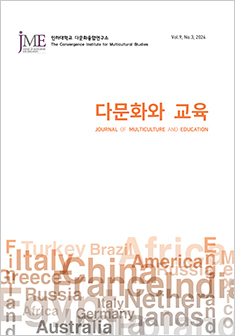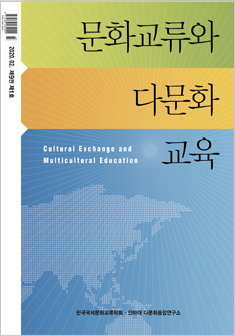
논문검색
HOME 학회지 논문검색
다문화와 교육(Journal of Multiculture and Education), Vol.8 no.1 (2023)
pp.71~95
Japanese Imperial Subjects Transplanted to Asia and the ‘Crack between the People’ - Hikiage’s Multilayered Character and ‘Post-war’ -
This article dissertation intends to examine the problem of migration and return that developed during the period of Japanese imperialism in connection with the problem of conceptual identity. Since hikiage began in earnest after August 15, 1945 when World War II came to an end, it is associated with postwar Japan and thus the hikiage issue should not be overlooked when discussing postwar Japan. Rather than discussing hikiage in the postwar history, the comparative study shows the need to discuss preand post-war Japan from the perspective of hikiagesha, or returnees from Japanese overseas colonial territories. In post-war Japan, the progress of hikiage and hikiagesha’s experiences were featured in novels, autobiographies, and the media, with their image being formed. Hikiage was extremely simplified and defined as the returning of overseas Japanese people to Japan after Japan lost the war, and the image of hikiagesha was formed, which is different from that of the local Japanese people. Hikiage was described using words like ‘homecoming,’ ‘return,’ ‘repatriation,’ ‘stowing away,’ and ‘eviction,’ concealing the fact that hikiage reflects hikiagesha’s experiences in different countries and regions. In order to clarify this, this article examined hikiage in relation to regional characteristics of several concepts and relationships of international politics. This article also shows that hikiage involves a ‘level’ that is different from ‘human migration’ or an ‘immigration issue,’ which appear in existing studies. In other words, the aspects of hikiage experience are very different and complex to interpret as ‘being victimized’ and ‘victimizing others’ overlap in hikiage. This causes difficulty developing historical awareness or bringing back memories of war. This article examines hikiage in relation to national imperialism and examines how it was perceived by the colonized by looking at the use of such concepts as salvage, homecoming, and return in Korean society. Notably, this article suggests the need to consider the hikiage issue as a medium to reconstruct the war experience and Cold War system experience of East Asia beyond the logic behind the colonizer and the colonized.
 다문화와 교육(Journal of Multiculture and Education)
다문화와 교육(Journal of Multiculture and Education) 문화교류와 다문화교육
문화교류와 다문화교육